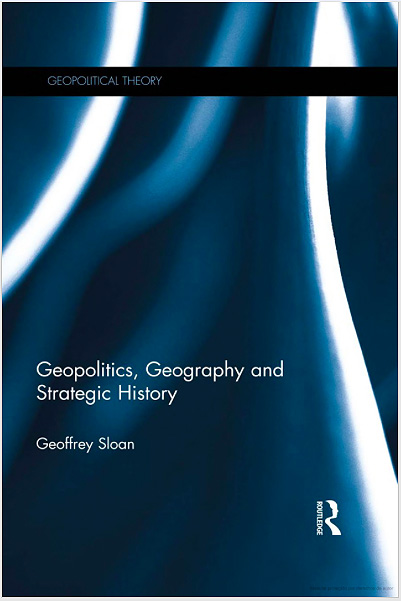Ruta de navegación
Menú de navegación
Blogs
Entries with label mackinder .
[Geoffry Sloan, Geopolitics, Geography and Strategic History. Routledge. New York, 2017. 251 p.]
review / Emili J. Blasco
Today we are witnessing a frequent use of the term geopolitics that is often devoid of content. After decades of the word being stigmatized, given the contamination it suffered in the first third of the twentieth century by elaborations such as Lebensraum, its employment It has become widespread in recent years as China and Russia have begun to take positions in the new post-unipolar world order. However, it is not uncommon to speak of geopolitics as a mere synonym for international relations, without a specific meaning.
Remembering the strict value of the concept, stripping it of trivializations or misunderstandings, is the purpose by Geoffrey Sloan, a British academic specialising in Halford Mackinder, one of the great names in geopolitics. Sloan understands this as a "tripartite construction" of geography, strategy, and history, elements that give rise to the degree scroll of his book.
The author locates the dawn of geopolitics in a "first wave" of thinkers distant in time and in their philosophical conceptions, such as Aristotle, Machiavelli and Montesquieu, but it was not until the "second wave", at the end of the nineteenth century and the beginning of the twentieth, when the discipline adopt that name and define its contours with the help of Ratzel, Mahan, Mackinder, Haushofer... After a long period of ostracism, because it was considered that some totalitarianisms had fed on the ravings of certain schools, at the beginning of the 21st century the term geopolitics resurfaces. However, in Sloan's opinion, it is affected by a triple problem: its lack of definition, the lack of bibliography and its confusion with realpolitik.
 |
Today, people have begun to talk about geopolitics so often that it has lost its proper meaning. "The term geopolitics has enjoyed a ghostly life after death, becoming used everywhere while being drained of substantive theoretical content, and is used in so many ways that it has become meaningless, if there is no further specification," warns a statement. quotation by S. R. Gokmen.
In contrast to its generic use, assimilated to that of international politics, Sloan defends its original meaning, absolutely attached to geography. "Although all the politics of a state do not derive from its geography," say the 1938 words of Nicholas Spykman—another classic of geopolitics—that open the book, "the state cannot escape that geography. Size, shape, location, topography and climate provide conditions from which there is no escape, no matter how qualified the Ministry of Foreign Affairs or how resourceful the General Staff may be."
The temporal break in geopolitical thought – Sloan notes that no book on geopolitics was published in English between 1945 and 1977 – may explain why many today have lost track of the strict geographical content of the term. But even among those who seem to want to give it a specific meaning, there is the confusion of assimilating geopolitics with the realist theory of international relations. According to Sloan, "Perhaps the most common misconception about geopolitical theory is its symbiotic relationship to the realist approach. It maintains that all thinking about international relations should begin with the recognition of the primacy of power and that geographical factors are a vital part of the evaluation of power." The author warns that in geopolitics there is also room for an idealistic approach, since it is not something tied to the administrative state nor is it exclusively identified with conservative political ideologies.
Sloan proposes a "trinitarian structure" of geopolitics, in a diagram where the relationship between geography and strategy generates geostrategy, the relationship between geography and history gives rise to historical geography, and the relationship between history and strategy derives into diplomatic history.
The approach of the work is in its first part theoretical, and then gives way to certain historical concretions, for the most part in the light of concepts elaborated by Mackinder.
